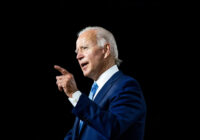In the world of both journalism and diplomacy, words often take on a meaning that turns out to be close to the opposite of their official definition in the dictionary.
In an article published on the day of Russia’s invasion of Ukraine, CBS News summed up journalist Norah O’Donnell’s conversation with the top foreign policy official in the US in these words: “Secretary of State Antony Blinken said it is obvious Russian President Vladimir Putin has goals beyond Ukraine and may have other countries in his sights.”
Today’s Weekly Devil’s Dictionary definition:
Obvious:
Possibly true, maybe even unlikely, but what the speaker hopes people will believe is true
Contextual note
With everyone in government and the media speculating about — rather than thinking through — the real reasons behind the Russian assault on Ukraine, CBS News, like most of US legacy media, wants its readers to focus on the most extreme hypothesis. That is the gift any war offers to the media: the possibility of not just imagining but supposing the worst.
An Expert Explains Why We Need a New Cold War With China
It works because the idea that Vladimir Putin has designs that go beyond Ukraine is certainly credible. But it has no basis in fact. In wartime, the media, even more than politicians, will always do their damnedest to damn beyond redemption the party designated as the enemy. One crime is never enough. The public must be encouraged to believe that other, more serious crimes are in the offing. That will incite the audience to return for more.
The article is about Antony Blinken’s understanding of the conflict, but he never used the word “obvious.” Instead, he speculated out loud about what an evil dictator might be thinking. “He’s made clear,” Blinken asserted without citing evidence, “that he’d like to reconstitute the Soviet empire.” He then shifts to a less extreme interpretation. “Short of that,” Blinken continues, “he’d like to reassert a sphere of influence around neighboring countries that were once part of the Soviet bloc.” And he ends with what is a perfectly reasonable assumption: “And short of that, he’d like to make sure that all of these countries are somehow neutral.”
Blinken’s contention that Putin’s “made clear” his intention to restore the Soviet empire undoubtedly prompted CBS’ choice of the word “obvious,” which is a bold exaggeration. But Blinken is exaggerating when he claims it’s “clear.” Something is clear if it is visible, with no obstacle that prevents us from seeing it. In this case, clarity would exist if Putin had ever expressed that intention. But that has never happened. So, what Blinken claims to be clear is mere suspicion.
Blinken cleverly evokes “the Soviet empire” that he is convinced Putin wants to restore. The Soviet Union was a communist dictatorship, the ideological enemy of the United States. But Putin is an oligarchic capitalist who inherited a Russia whose economy was transformed by American consultants after the fall of the Soviet Union. Blinken knows that Americans are horrified by any association with communism and quasi-religiously “believe in” capitalism, even oligarchic capitalism, since the US has produced its own version of that. Blinken’s statement can therefore be read as clever State Department propaganda. He designed it to evoke emotions that are inappropriate to the actual context.
Things become linguistically more interesting when Blinken goes on to offer a softer reading of Putin’s intention, introduced by “short of that.” He descends the ladder of horror by moving from “empire” to “sphere of influence.” It is far less fear-inspiring, but he continues to evoke the communist threat by alluding to “countries that were once part of the Soviet bloc.”
The next step down the ladder, again introduced by “short of that,” reads like a puzzling anti-climax. “And short of that,” Blinken says, “he’d like to make sure that all of these countries are somehow neutral.” Is he suggesting that the neutrality of surrounding nations is the equivalent of reconstituting the Soviet Union? If they are truly neutral, like Switzerland or Finland, they belong to no bloc. Blinken apparently wants the undiscerning listener to assume that being neutral is just a lighter, perhaps less constraining version of being part of a new Soviet empire.
This kind of speculation based on mental reflexes acquired during the Cold War may seem odd for another reason. Blinken was speaking at the very moment when actual hostilities were breaking out. In the previous weeks, discussions between the two sides had taken place, which meant they could continue. Things changed, of course, at the beginning of last week when Putin declared, “I deem it necessary to make a decision that should have been made a long time ago — to immediately recognize the independence and sovereignty of the Donetsk People’s Republic and the Luhansk People’s Republic.”
That statement on February 21 should have created a new sense of urgency in Washington to prevent the worst from happening by precipitating new negotiations. The opposite happened. Russia’s overtures calling for a summit were refused and Blinken’s planned meeting with Russian Foreign Minister Sergey Lavrov was canceled.
The West and indeed the world were legitimately shocked by Putin’s move. It violated a basic principle of international law and contradicted the terms of the Minsk agreement that looked forward to defining the future autonomy of Donetsk and Luhansk. On that score, Putin was not wrong when he noted that the definition and application of that autonomy should have taken place much earlier, indeed, “a long time ago.”
What Blinken described corresponds to an imaginary negotiation with Putin, who may have adopted a strategy of beginning with an extreme position by demanding a return to a post-Yalta order in Eastern Europe. Negotiators typically exaggerate at the beginning, proposing what they never expect to achieve, to arrive at something that will be deemed acceptable. It’s called giving ground. Blinken’s first “short of that” anticipates what Putin might do once the extreme position is rejected. His second “short of that” tells us what Blinken imagines Putin’s next concession might be. That takes him to the neutrality hypothesis, which in fact, as everyone knows, was Putin’s red line.
If Blinken can imagine that kind of negotiating process, why didn’t he choose to engage in it? The answer lies in his implicit assessment of the idea of neutrality. Neutrality is not an option. It confirms what many suspect: the US adheres to a confrontational model of international relations. It is the George W. Bush doctrine: if you are not with us, you are against us. That applies even to neutral countries.
The CBS article contains some other interesting curiosities. After explaining exactly what Putin is secretly thinking, at one point, Blinken objects: “I can’t begin to get into his head.” When queried about what the intelligence community has provided to Blinken to justify what he says he thinks is in Putin’s head, he replies, “You don’t need intelligence to tell you that that’s exactly what President Putin wants.” Blinken wants us to believe that he understands everything but knows nothing.
Historical Note
Could it be that in this age of social media, where everyone lives comfortably in their silo, we have heard the death knell of even the idea of negotiation, a practice that has been respected in international relations throughout human history? Or is it an effect of historically informed cynicism due to the fact that, in many cases, negotiations have failed to prevent the unthinkable? Everyone remembers Neville Chamberlain’s negotiation with Adolf Hitler in 1938 that seemed to succeed until it became clear that it had failed.
Or is it just a US phenomenon? Emmanuel Macron of France and Olaf Scholz of Germany made last-minute attempts to negotiate with Vladimir Putin, but they lacked the authority of the US.
In recent decades, US culture appears to have created a kind of reflex that consists of refusing to enter into dialogue whenever one has the feeling that the other party doesn’t share the same ideas or opinions. This aversion to sitting down and sorting out major problems may be an indirect consequence of the wokeness wars, which inevitably lead to the conclusion that the other side will always be unenlightened and incorrigible. Discussion serves no purpose, especially since those committed to a fixed position live in fear of hearing something that might modulate their enthusiasm.
Today’s confrontational culture in the US reveals that Americans are now more interested in making a display of their moral indignation at people who look, think or act differently than they are in trying to understand, let alone iron out their differences. In the past, John F. Kennedy and Nikita Khrushchev solved major problems through dialogue. Ronald Reagan and Leonid Brezhnev talked constructively, as did Reagan and Mikhail Gorbachev. And then there was the extraordinary case of Richard Nixon and Mao Zedong.
We are now in the age of Karens. Even our political leaders have identified with that culture.
*[In the age of Oscar Wilde and Mark Twain, another American wit, the journalist Ambrose Bierce, produced a series of satirical definitions of commonly used terms, throwing light on their hidden meanings in real discourse. Bierce eventually collected and published them as a book, The Devil’s Dictionary, in 1911. We have shamelessly appropriated his title in the interest of continuing his wholesome pedagogical effort to enlighten generations of readers of the news. Read more of The Fair Observer Devil’s Dictionary.]
The views expressed in this article are the author’s own and do not necessarily reflect Fair Observer’s editorial policy.
Support Fair Observer
We rely on your support for our independence, diversity and quality.
For more than 10 years, Fair Observer has been free, fair and independent. No billionaire owns us, no advertisers control us. We are a reader-supported nonprofit. Unlike many other publications, we keep our content free for readers regardless of where they live or whether they can afford to pay. We have no paywalls and no ads.
In the post-truth era of fake news, echo chambers and filter bubbles, we publish a plurality of perspectives from around the world. Anyone can publish with us, but everyone goes through a rigorous editorial process. So, you get fact-checked, well-reasoned content instead of noise.
We publish 2,500+ voices from 90+ countries. We also conduct education and training programs
on subjects ranging from digital media and journalism to writing and critical thinking. This
doesn’t come cheap. Servers, editors, trainers and web developers cost
money.
Please consider supporting us on a regular basis as a recurring donor or a
sustaining member.
Will you support FO’s journalism?
We rely on your support for our independence, diversity and quality.







